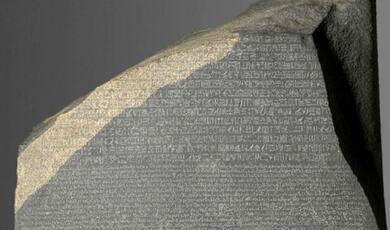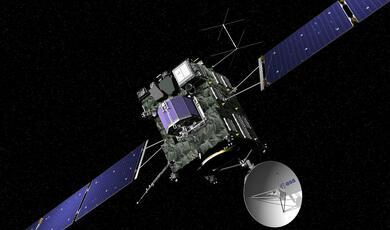Just as the Rosetta Stone and the Philae Obelisk became the key to interpreting hieroglyphs and understanding ancient Egyptian civilisation, the European Space Agency's Rosetta probe and its Philae lander are key to furthering our understanding of the formation of our solar system, and the origins of life. The Philae lander made the first ever soft landing on a comet, opening a new chapter in Solar System exploration.
The Egyptian theme was also used by Professor Colin Pillinger who named the instrument he proposed for the mission Ptolemy. Ptolemy will perform an on-the-spot analysis of the composition of the ices and organic material within the comet. The instrument has already been working in space, making measurements during an asteroid fly-by en route to its cometary destination. The orbiter will continue to follow the comet around the Sun and as it moves back out towards the orbit of Jupiter.
The roles of Thomas Young and Jean-Francois Champollion in deciphering the Rosetta Stone and the contribution of William Bankes with regard to the Philae Obelisk continue to provoke much discussion and will be considered alongside latest results from the spacecraft and instruments which have carried the names far into space.
This is a special Memorial Lecture, held in memory of Professor Colin Pillinger CBE FRS (1943-2014) who was Gresham Professor of Astronomy from 1996 to 2000.


 Login
Login



